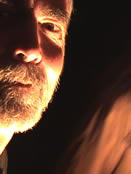Great
Writers and Street Poets
1 February 2000
I just finished a great biography of Thomas Mann, widely regarded as the greatest--perhaps the last great--novelist of the twentieth century. I also read a little online article about Jack Kerouac, better known to contemporary readers and in fact a writer whose tarnished star is on the rise again. What do these eminent authors--one a stodgy intellectual heavyweight, the other a rabidly rebellious prose-poet of the streets--have to say by way of a common message which can speak (and sing) to the tech-wise and media-drowned citizen of the new millennium?
To my mind and heart, the methods of both writers give validity to a principle that I carefully call spiritual. Though Mann wrote with the obsessive deliberation of daily routine, year in and year out until the ripe age of eighty, and Kerouac spun out jazz novels in speed-crazed marathons on continuous rolls of typing paper, both were committed to the heart of literary inspiration, spontaneous prose composition. Planning of course went into the working methods of both; but when it came time to put pen or key to paper, the muse was invited in largely without censorship. Both writers adamantly refused attempts by editors and publishers to cut and revise, and their enduring fame tells us they had the genius to get away with it.
In an age where every Jane and Joe and their dog and cat and schoolkids can publish live on the Net, the principle of raw uploading sounds dangerous: not in the political sense but in respect to our precious time as readers. How can we find our way through the verbal slush to the real gold, the lasting literary value, when there's no editorial hierarchy anymore to enforce trustworthy standards?
Well, we just have to follow our hearts, our instincts, and the synchronicity of what we find whether in search mode or simple receptivity. As a writer I believe the same principle holds true. Genius is one thing and fame is another, and language that is worthwhile sharing sometimes cares not a whit about either. In offering the present observation of the day, for instance, I can only do my best to be faithful to the opportunity of the moment; to serve as a channel for truth as it may be named; to call to attention the issues that too often bind our potential in stale convention; to open my possibilities and yours with a fresh attitude, a leading melody, and a listening ear.
After that comes the snowy silence, punctuated by February wind.
© Nowick Gray
 Cougar WebWorks
Cougar WebWorks 
 Further
Adventures of a Rogue Journalist
Further
Adventures of a Rogue Journalist
 Learn djembe and dundun rhythms the easy way
Learn djembe and dundun rhythms the easy way